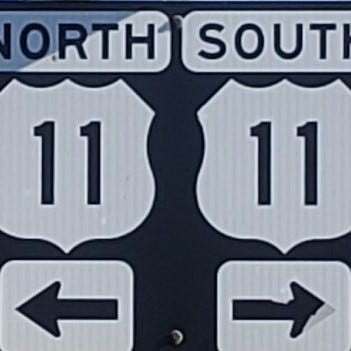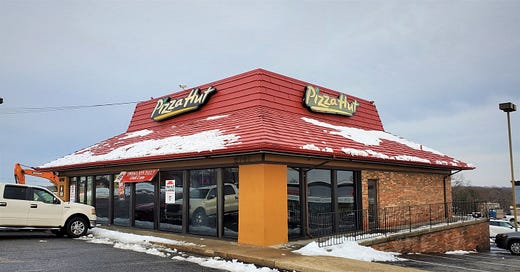
The Supply-Chain Empire, City Journal, Charles F. McElwee, Winter 2022
This is an excellent history and current description of Pennsylvania’s Lehigh Valley economy, from someone who knows the state like the back of his hand. Most of the piece is about the region’s industrial history and overall economic trends, e.g.:
In an age when algorithms feed consumer demands, the Lehigh Valley has become the East Coast’s supply-chain empire for transporting one-click goods on interstate highways.…the Valley adjoins metro New York and Philadelphia and stands within one truck shift of 100 million people.
This has also raised housing affordability issues, in a region where few would have expected to see rapid economic growth as little as 20 years ago. (I wrote about the Lehigh Valley’s housing issues here.) McElwee’s piece is long and very much worth your time.
Why I Haven’t Left, The Newarker, mantunes, January 2, 2022
On paper, I really don’t belong in this city. I do not fit neatly into any boxes. I am Portuguese, but not of the Ironbound persuasion. I grew up in the pervasively urban atmosphere of Newark, but was so thoroughly denuded of that identity by twelve years of board school and private universities. The things I like to do range from the endearingly esoteric to the snobbishly obscure. I love Eurostyle tabletop games, independent film, Vietnamese cuisine, general purpose bookstores, Hungarian pastries, escape rooms, post-cocktail-renaissance lounges, postmodernist poetry, and post-rock. Newark comes up pretty short on any of these offerings.
And yet.
I love pieces that meditate on the meaning of place, and this is as good as any. You really can’t reduce a city to a set of consumptive or experiential amenities, nor can you reduce it to crime and social problems or a lack thereof. The author notes, in the event of moving, the necessity of “relearn[ing] all the nuances of atmosphere and geography that makes each place unique.”
I think this is more than just familiarity or nostalgia; it is true that NIMBYism uses these sentiments cynically, but that does not mean they are illegitimate or without substance.
Read the whole thing.
Too Fast or Too Furious?, The New Republic, March 9, 2022
This is a podcast, but the link also includes a transcription.
The phenomenon of increased crashes and traffic fatalities has been widely noted as far back as spring of 2020, but what exactly it means has been debated. This discussion considers that question.
Charles Marohn of Strong Towns is interviewed here, and he says, “The only tool they [traffic safety engineers] have in their arsenal is that it’s caused by human error. The humans must be broken in some way that they weren’t before the pandemic started.”
He argues that roads are essentially built to be dangerous—not on purpose, but nonetheless—and that traffic congestion simply masks how dangerous they really are. Not everyone agrees with that, and this podcast has sparked some further commentary on the question.
There’s also, later on, a case for automated but low-cost tickets that cost no points on your license, made by guest Jessie Singer: “It’s not the level of punishment that matters, it’s the guarantee of the consequence.” That’s really interesting.
The final guest, Jason Slaughter, makes an extremely insightful point as well: “The problem with the U.S. is that they took that philosophy of, “We’ll allow people to make mistakes”—for instance, let them run off the road and not hit a tree—but that was only ever done for drivers. It was never done to let pedestrians make mistakes, to let cyclists make mistakes.”
And there’s a lot more in here as well, so once again, read the whole thing.
This is interesting, as a description of the Amazon “Just Walk Out” technology. Amazon’s very forgiving attitude towards errors and refunds is on display:
Luckily, it took just three clicks to tell Amazon that this charge was bogus, and my money was refunded with no hassle. I thought it was a little odd that Amazon didn’t give me a chance to tell them that they should have charged me for ginger instead. Not only could they have gotten more money that way, the feedback might help them improve their software.
Lee argues that overall the technology is reliable and that other grocery chains should take Amazon seriously. Maybe. I’m probably in the minority, but I would go out of my way not to patronize a store that adopts this technology. Cashless is not good either for privacy or for discipline—it’s easier to pile stuff in the cart when you don’t feel like you actually have to pay for it.
Related Reading:
Please consider upgrading to a paid subscription to help support this newsletter. You’ll get a weekend subscribers-only post, plus full access to the archive of nearly 300 posts and growing. And you’ll help ensure more material like this!











I feel like a lot of transportation safety people work themselves into a corner with "only this matters, and nothing else." For example: “It’s not the level of punishment that matters, it’s the guarantee of the consequence" as quoted in your roundup. Surely, both things matter, because if you were given a one cent ticket with certainty, or only one person in the nation was given a trillion dollar speeding ticket and nobody else was ticketed, both systems would be extremely ineffective. A lot of people really oversell road redesign like this. Yeah, it would help, and we should do it, but it's not the only thing, and it wouldn't work if we did absolutely nothing else. Commonly, you read/hear things like "people won't do something if there's a chance that it will damage their car," but there's no shortage of videos of cars just plowing straight into the middle of a roundabout at 90 mph or driving down a narrow street in a city with cars parked on both sides and nearly hitting a kid that steps out.
In short, everybody needs to chill with the absolutism and seek a little balance.